- EDITION: U.S.
- INTERNATIONAL
- MÉXICO
- ARABIC

 By Gordon Brown, Special to CNN
By Gordon Brown, Special to CNN
Editor's note: Gordon Brown served as Britain's prime minister between 2007 and 2010 after a decade as the country's finance minister, or chancellor of the Exchequer. In July this year he was appointed as a United Nations Special Envoy on Global Education by Secretary General Ban Ki-moon.
Islamabad, Pakistan (CNN) - Pakistan has a new heroine and a new cause - a girl's right to education - and after Friday's announcements from the Pakistani government that they will adopt new measures to get every child into school by end 2015, that cause has a timetable and a deadline for delivery.
Everywhere you go in Pakistan you find people talking animatedly about the 15-year-old girl, Malala Yousafzai, who was shot by the Taliban last month.
A rickshaw touring the streets of Islamabad has a slogan posted on it: "Malala for education and peace." Go to the local girls' school and every girl seems to have written either a poem or a song, a letter or a card to Malala.
Listen to the politicians and every speech is laced with references to the courage of Malala. Meet civil society organizations and they will tell you that the audience for their educational demands has risen markedly over the last few weeks.
It seems that Malala's courage has awoken Pakistan's silent majority who are no longer prepared to tolerate the threats and intimidations of the Pakistan Taliban.
Can Pakistan convert its momentary desire to speak out in support of Malala into a long term commitment to getting its three million girls and five million children into school? Can the politicians, long-criticized for a failure to deliver, find the teachers, the classrooms and the reading materials to give millions of children a basic education?
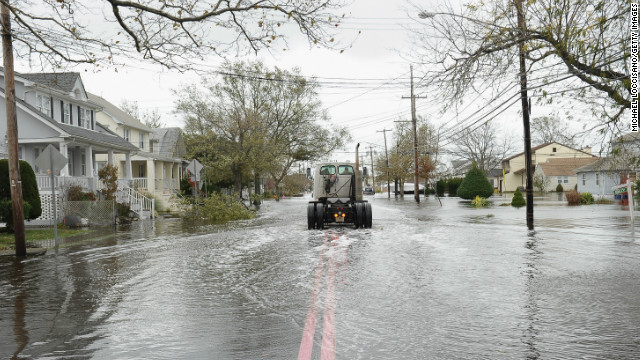
Editor's note: Steve Politi is a sports columnist for The Star-Ledger in Newark, New Jersey. He can be reached at spoliti@starledger.com or Twitter: @StevePoliti
By Steve Politi, Special to CNN
(CNN) - Football can't do much to help the devastated communities along the Jersey Shore after Hurricane Sandy. But this is what residents in dozens of towns are discovering this month: Football players can.
From Union Beach to Seaside Heights, from Belmar to Bayville, local high school teams are aiding the recovery effort with supplies, with support, and sometimes, with strength.
That was the scene in Point Pleasant Beach last weekend. More than a dozen members of the town's undefeated high school team went door to door helping their neighbors. They carried out flood-ravaged debris to the curb, from couches to dressers to dining room furniture, and when they finished one house they would walk as a group to the next and start again.
"I said to the kids when I texted them (to organize the cleanup), the community has been so behind us, this is an opportunity for us, in a way, to say thank you," said John Wagner, the team's head coach.
Many of the players had done the same thing at their own homes earlier in the week. Others were displaced, living in hotels or shelters, not sure where their families would settle long-term.
This is the case up and down the Jersey Shore, the epicenter of the devastation from the unprecedented storm. The images on television days after, from the roller coaster from the Seaside boardwalk sitting in the ocean to the boats piled up like toys on the streets, do not begin to sum up the damage.
 By Anthony Cody, Special to CNN
By Anthony Cody, Special to CNN
Editor’s note:Anthony Cody worked in schools in Oakland, California, for 24 years. He taught middle school science 18 of those years. He lives in Mendocino County, California, and leads workshops for teachers. He writes the Living in Dialogue blog, and you can follow him on Twitter, @AnthonyCody.
(CNN) - Dear Mr. Lucas,
I have recently read of the $4 billion that you will receive for selling your movie empire to Disney, and your plans to give most of this money to support education. This is wonderful news. I deeply appreciate this generosity. I am writing a letter to encourage you to think outside the box as you decide how to spend these funds. It is critical to consider where educators find ourselves in 2012.
The George Lucas Education Foundation already has made a substantial impact on our schools. Edutopia has been an amazing resource for years, sharing news and examples of project-based learning, authentic inquiry and other innovations. The emphasis is almost always on giving students rich challenges, with opportunities for creative expression.
This emphasis is decidedly at odds with the direction of the other giants of “education reform” such as the Gates Foundation. It also runs counter to the mainstream of No Child Left Behind, Race to the Top and other government-led reforms, which place their faith in standardized test data and curriculum aligned to standards and tests.
Students have suffered through an entire generation of test-centered reforms. The results are very poor. The National Academy of Sciences released a report last year that concluded a decade of ever-higher stakes attached to tests has yielded no growth.
FULL POST
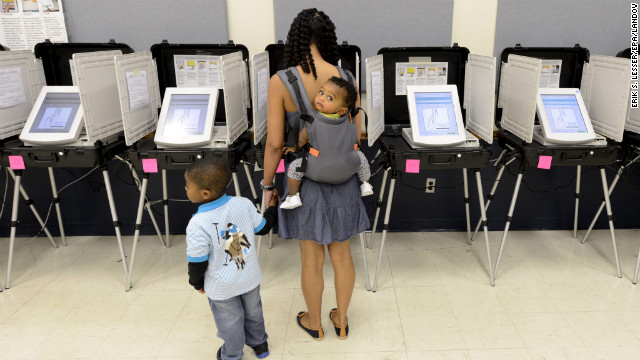
By Jamie Gumbrecht, CNN
(CNN) - In an election year when education didn’t draw much attention, some voters considered Tuesday the future of charter schools in their states.
In Washington, there was a narrow lead for an initiative that would allow the opening of the state’s first public charter schools.
Washington is one of nine states that doesn’t have any public charter schools. Initiative 1240 would allow eight charter schools per year in the state, up to 40 over five years. At the end of that period, the charter system would be up for review. The system would be free and open to all students, and independently operated.
Critics argued the initiative was an expensive proposition at a time when schools were already underfunded, and that it didn’t serve enough students.
Supporters said the schools would create competition among schools and increase the choices available to parents and students. They liked that the schools wouldn’t be bound by district curriculum mandates or teacher unions’ contracts.
In Georgia, with most ballots counted, voters favored a constitutional amendment that would allow a state commission to approve school charters, even if local and state boards deny them.
By Donna Krache, CNN
(CNN) On Tuesday, voters in two states – Washington and Georgia – will be weighing in on charter schools.
Charter schools are independent public schools that have flexibility in certain aspects of education like curriculum and length of the school day. In return for this flexibility, they are held accountable for student performance.
The research is mixed on whether students in charters perform better than their traditional public school counterparts. Some cite the CREDO study from Stanford University, which found that “17% of charter schools provide superior education opportunities for their students.” According to this study, about half the charters did not fare any better or worse than their traditional school counterparts, and about 37% of the charters fared worse.
Others cite research like that found in the “Informing the Debate” study from the Boston Foundation, which “found large positive effects for Charter Schools at both the middle and high school levels.”
Currently, 41 states and the District of Columbia have charter schools.
The topic of charter schools, including how they are established and who gets to attend them, stirs up a lot of emotion among parents, educators and policymakers. Because it’s relatively new territory, shaping legislation on charters has become a public tug-of-war. The states of Washington and Georgia have charter school initiatives on their ballots.
Washington’s Initiative 1240
Washington has put ballot measures on charters in front of voters three times before, each one rejected – most recently in 2004, when the measure failed by 16 percentage points. There are no charter schools in Washington.
The latest attempt is Initiative 1240, which would allow for the establishment of eight charter schools in the state per year – 40 over five years. At the end of that period, the charter system would be up for review. The state-approved charter schools would be free and open to all students and be independently operated.
FULL POST
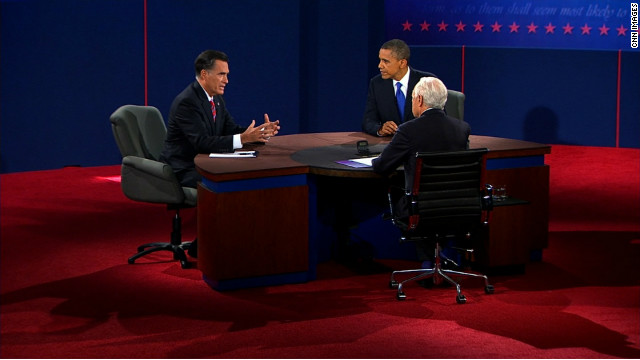
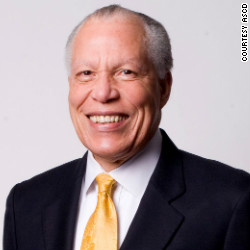 By Gene Carter, Special to CNN
By Gene Carter, Special to CNN
Editor’s note: Gene Carter is CEO and executive director of ASCD, an international education leadership association with 150,000 members—superintendents, principals, teachers, professors, and advocates — in more than 145 countries. A veteran educator with experience as a teacher, administrator, superintendent and university professor, Carter took over the helm of ASCD (formerly the Association for Supervision and Curriculum Development) in 1992.
As the 2012 presidential campaign builds to what appears to be an incredibly close finish, I am struck by the absence of education in the candidates’ ongoing dialogue. Job creation, health care, tax policy, and even Big Bird have been campaign issues, but to date, education policy has only lurked in the background.
Why is this? The results of the 2012 PDK/Gallup Poll of the Public's Attitudes Toward the Public Schools are instructive. According to the survey, 77% of respondents assigned the nation’s schools either a C grade or lower; yet the poll says we have confidence in public school teachers. Respondents believe that closing the achievement gap and improving urban schools is important, but they would rather balance the federal budget than improve education.
The U.S. voters’ paradoxical views on education make it a difficult issue for presidential candidates to address, and that may be a good thing. Education’s lack of prominence on the campaign trail might preserve it from becoming a wedge issue that further divides us.
FULL POST
By John Martin, CNN
(CNN) - A New Hampshire school board member says that he wants to ban football in his district. Paul Butler, a retired surgeon and first-term board member for the Dover school district, says that the risks of injury in the sport are too great. "I think it's bad to take this away I certainly do. But it's worse to let it continue," Dr. Butler told CNN affiliate WHDH.
The American Academy of Pediatrics doesn’t just call football a contact sport. The medical group also refers to it as a collision sport, because participants routinely slam into each other or into the ground.
AAP released updated guidelines in 2010 on dealing with head injuries in children, recommending that some student-athletes retire from football after multiple concussions or if symptoms from a concussion last longer than three months.
The medical group doesn’t say young people shouldn’t play varsity football, which is what it said about youth boxing in 1997.
Some parents say there are benefits to playing on the gridiron. "I think there's a lot of positive things you can get from playing football. A lot of good lessons kids learn, teamwork, working together for a common goal," Harold Stephens says in the video above.
FULL POST
From the Marquee blog, CNN
(CNN)–George Lucas knows exactly what he's going to do with the payout from Disney's $4 billion acquisition of Lucasfilm, and it's not going to get funneled back into Hollywood.
Instead, the filmmaker said in a statement, the majority will go toward helping – and educating – others.
“For 41 years, the majority of my time and money has been put into the company," he said. "As I start a new chapter in my life, it is gratifying that I have the opportunity to devote more time and resources to philanthropy."
And, more specifically, to improving education, an effort he committed himself to back in 2010 by participating in The Giving Pledge. He explained in a letter dated July, 2010 that his belief in growing and developing young minds was the reason why he created the organizations Edutopia and the George Lucas Educational Foundation, the latter of which focuses on innovations in the field.
Now that he has a windfall from Lucasfilm – according to CNN Money, Disney is paying for the company with $2 billion in cash and around 40 million shares of its stock – Lucas plans to put the proceeds into his philanthropic passion.
“I am dedicating the majority of my wealth to improving education. It is the key to the survival of the human race," Lucas said in a statement. "We have to plan for our collective future—and the first step begins with social, emotional, and intellectual tools we provide to our children. As humans, our greatest tool for survival is our ability to think and to adapt—as educators, storytellers, and communicators our responsibility is to continue to do so.”
You're at a big group dinner and it's time to pay up, to divide the total and multiply a certain percentage for the tip. How many people tense up and say something like, "Oh, I'm so bad at math"?
Fear of math is everywhere – in the adult world where there aren't official pop quizzes, and in schools where the next generation of scientific problem-solvers are struggling with homework.
Researchers report in a new study in the journal PLoS One that this anxiety about mathematics triggers the same brain activity that's linked with the physical sensation of pain.
"I’m really interested in understanding the source of the anxiety so that we can help all students perform up to their best in this important area," says Sian Beilock, a University of Chicago researcher and one of the study's authors, who is also the author of the book “Choke.”
Read the Full Story from "The Chart"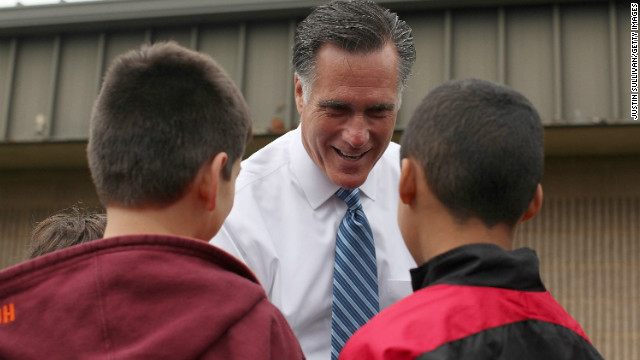
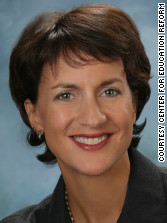 By Jeanne Allen, Special to CNN
By Jeanne Allen, Special to CNN
Editor’s note: Jeanne Allen is the founder and president of The Center for Education Reform (CER). The center was founded in 1993 to bridge the gap between policy and practice and restore excellence to education.
Schools of Thought has published and will continue to publish other views on this topic in the days up to the election.
“We can fix our schools because we don't get the biggest share of our campaign donations from the teachers' unions.”
This short, simple statement from Gov. Mitt Romney in an October 24 speech in Nevada sums up the real distinction between education reformers and protectors of the status quo, and reveals why when it comes to education policy, Romney would be a superior president - because he promised to put children, parents and teachers first, and to “put the teachers' unions behind."
The day has passed when that could be considered a partisan statement. We’ve heard stronger words, for example, from many Democrats, from former NYC Chancellor Joel Klein (also of the Clinton administration) to former New York City Councilwoman Eva Moskowitz (now of Success Charter Network) who pressed the unions to explain why their contracts were protecting mediocrity instead of boosting high-performing teachers. Pennsylvania Sen. Anthony Hardy Williams helped then-Republican Gov. Tom Ridge push through a charter school law in 1997. And in 2010, Williams ran for governor on a platform of school choice. His core message was that parents and teachers should come ahead of unions. Sound familiar?
Education reform is not, by any stretch, a “Republican” issue. The national Democratic Party has always viewed the education establishment as its bedrock constituency – from unions to school districts. But it’s different at the state and local level, where Democrats often reject the status quo, joining in a diverse coalition of voices pressing for significant reforms at every level.
While individually most of those Democrats will vote with their party, they are nevertheless closer to Romney’s view of education than they are to Barack Obama’s. Many have confided to me that their hope is to change the Democratic Party’s culture from one that favors teachers unions to one that favors parents.
But we cannot wait another generation or more for that to happen. Our children only get one chance at a decent education, and the clock is ticking. As former Secretary of State Condoleezza Rice put it, “Educational failure puts the United States’ future economic prosperity, global position, and physical safety at risk.”
FULL POST



Recent Comments